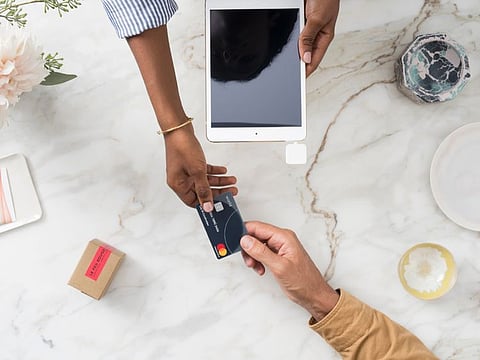Security beyond the card: How Mastercard is enabling inclusive growth
How the business is accommodating accelerated adoption of digital payments

The adoption of digital payments – in-store and online – was significantly accelerated in 2020 because of the dynamics of Covid-19. The speed, breadth, and permanence of this change, made possible by the fintech revolution and global digital transformation, is almost equalled by the growing sophistication of cybercrime.
And so, as financial services providers work on pioneering exciting new digital services and products, so too must they invest in security solutions that protect consumers, businesses, and the global financial system.
The diversity of platforms and devices complicates this challenge – financial services providers must consider the security risk of digital payments not only by cards but also by phones, mobile wallets, and wearable tech – across different networks and regulatory environments.
From start-ups to growing SMEs, large-scale e-commerce providers and millions of consumers, the UAE’s push towards a safe, secure, and inclusive cashless economy is seamlessly advancing.

In this context the Economy 2021 Report by the Mastercard Economics Institute points to the permanence of these changes in how consumers shop and pay. The report shows that e-commerce is here to stay, with approximately 20-30 per cent of the Covid-related surge in online spending now a permanent behavioural shift: a significant uptick in the digital share of overall retail spending.
If organisations like Mastercard can take the applause for pioneering digital payment technologies, they must also play a leading role to invest in and embedding crucial security features that enhance data privacy, tokenise transactions and give consumers peace of mind. Consumers can only enjoy the benefits of pioneering digital payment solutions if they know it is safe to do so.
Innovative partnerships
Achieving these critical objectives requires joined-up thinking and a collaborative approach to security infrastructure and innovation.
Partnerships with state players are essential. In February 2021, Mastercard launched its Global Cyber Forward programme in collaboration with Dubai International Financial Centre (DIFC), which is the largest financial center in the Middle East, Africa, and South Asia region; and home to the DIFC FinTech Hive. This partnership is important because it brings the expertise of a globally trusted financial services provider into the beating heart of the region’s most significant enabler of financial technology enterprise.
This vital partnership combines Mastercard’s cutting-edge cybersecurity capabilities with forward-thinking public sector organisations to create secure digital ecosystems at a national, local and city level. In doing so, they add momentum to the UAE’s ongoing digital transformation: enabling a thriving digital economy that supports entrepreneurship, financial inclusion, and economic growth – all elements that form an integral part of Mastercard’s multi-rail strategy.
Multi-rail strategy
Mastercard’s multi-rail strategy is specifically designed to deliver on those critical dynamics of inclusivity and sustainable growth which the digital economy can bring to a world beyond cash. By thinking beyond card payments, this multi-rail strategy enables Mastercard to converge new rails to reach every customer, merchant, and government player: seamlessly connecting stakeholders across the digital payments ecosystem and delivering choice to banks, businesses, and consumers.
This requires an additional layer of security especially when the focus is on seamless connections that are useful for SMEs. These cybersecurity solutions are also part of the “SME-in-a-Box” solution that was launched by Mastercard to aid small and micro merchants across the Middle East and Africa to expand their customer base through digital platforms, enabling sustainable revenue growth.
Inclusive growth
That growth is, of course, threatened by cybercrime, which is why Mastercard launched its proprietary tokenisation solution called MDES for Merchants (M4M) in the UAE in August 2020.
The new service uses tokenisation technology to speed-up and simplify the purchase process online and in-app by encrypting consumer data and replacing card numbers with digital tokens. This ensures that a consumer’s 16-digit card number is not stored anywhere, preventing improper usage at any other location, minimising online fraud. This security is imperative for SME success – small companies cannot afford to become victims of cybercrime.
It is also crucial for major online brands like Zomato, talabat, Uber and HungerStation, using Mastercard’s digitised payment chains. From start-ups to growing SMEs, large-scale e-commerce providers and millions of consumers, the UAE’s push towards a safe, secure, and inclusive cashless economy is seamlessly advancing.
Financial services providers must take that unique responsibility seriously if we are to achieve inclusive social and economic growth by staying one step ahead of the cybercriminals. Our societies depend on it.
Advertiser's content



